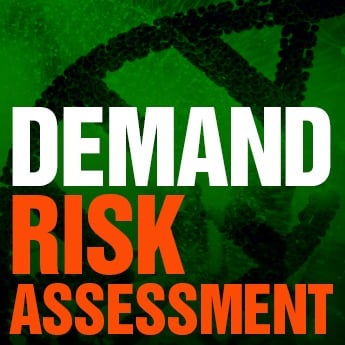Wednesday, September 27, 2023.
Documents received via Access to Information show that the biotechnology and pesticide industry lobby group CropLife Canada worked in a joint committee with federal government departments called the “Tiger Team” to design new regulatory guidance on genetically engineered foods and crops (genetically modified organisms or GMOs). The new guidance removes government oversight, including government safety assessments, from many new GMOs.
Radio-Canada reports that CropLife Canada steered changes to regulatory guidance on GMOs through a corporate-government committee called the “Tiger Team” that met frequently and discussed regulatory proposals.
“The regulatory departments worked together in constant communication with the biotechnology industry towards a decision that ended government regulation for many of the industry’s own products,” said Lucy Sharratt of the Canadian Biotechnology Action Network (CBAN). “This shift to corporate self-regulation of GMOs is dangerous and now we can clearly see that the process to get there was driven by industry itself. Government oversight over all GMOs should be immediately be reinstated, to ensure food safety and transparency.”
Among the documents are those received via Access to Information by the Canadian Biotechnology Action Network (CBAN) which confirm a consistent, high level of collaboration among CropLife Canada, Health Canada, the Canadian Food Inspection Agency (CFIA), and Agriculture and Agri-Food Canada. For example:
- In March 2021, Health Canada launched a public consultation on regulatory guidance proposals but, as early as March 2019, Health Canada was having ongoing discussions about the guidance with CropLife Canada, and soliciting comments from CropLife on draft government documents as well as government “ideas for the transparency” of regulatory decisions, in a document called a “thought starter” on transparency.
- CropLife Canada submitted policy options on GMO regulation in April 2019, in response to a request from an “ADM (Assistant Deputy Minister) steering committee”.
- In April 2019, Health Canada’s policy options on “transparency” included a proposal to require companies to notify the public of all new GMOs coming to the market. However, CropLife told Health Canada that this proposal was “not supported”. Instead of mandating reporting of new GM products to the government, Health Canada is now implementing what it called “voluntary transparency” in public consultations, where companies are “invited” to voluntarily list new unregulated GMOs. This lack of mandatory notification means that some genetically engineered foods and seeds can be released onto the market without the knowledge of farmers, food manufacturers and the general public.
“The federal government gave away its authority to check these new GMOs for food and environmental safety, and to tell Canadians about them. The biotechnology industry has secured the option to hide their GMOs from consumers, farmers and the government,” said Sharratt.
In November 2021, 105 organizations wrote to the health and agriculture ministers opposing the proposed changes, and demanding government oversight and transparency over all GMOs.
The new regulatory guidance secures regulatory exemptions for many gene edited seeds that have no foreign DNA and many foods produced from these genetically engineered plants. Many of these GMOs will not go through any pre-market government approval process at Health Canada or the CFIA. Instead, companies can release them onto the market without any government safety assessments, and without notifying the government.
According to 2022 public opinion research conducted by Pollara Strategic Insights for CBAN, a majority of Canadians (54%) were already concerned about the safety of GM foods and opposed by a margin of nearly 2 to 1 (46% to 24%) the proposals to let companies conduct their own safety assessments of some GM foods produced through gene editing (those with no foreign DNA) rather than require independent regulators at Health Canada to assess safety.
-30-
For more information: Lucy Sharratt, Coordinator, Canadian Biotechnology Action Network, 902 2029 4906, coordinator@cban.ca , www.cban.ca/NoExemptions
The Canadian Biotechnology Action Network (CBAN) brings together 15 groups to research, monitor and raise awareness about issues relating to genetic engineering in food and farming. CBAN members include farmer associations, environmental and social justice organizations, and regional coalitions of grassroots groups. CBAN is a project of MakeWay’s shared platform. www.cban.ca/NoExemptions





